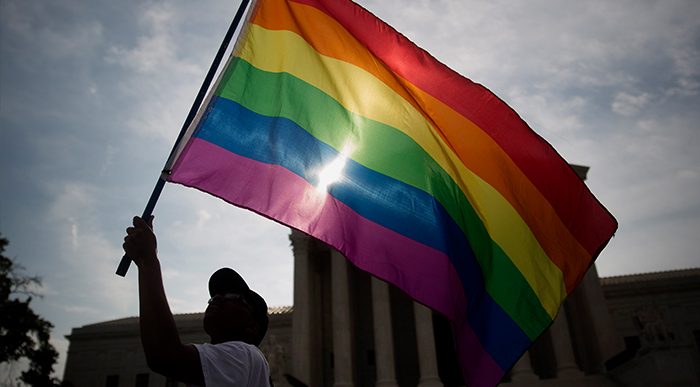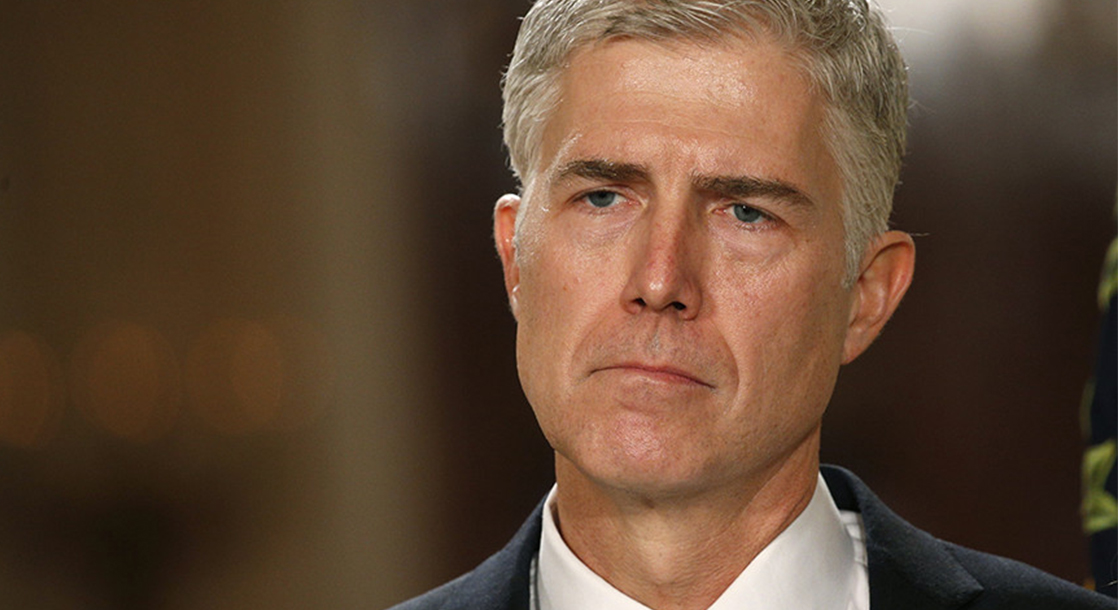Last November, dark times fell over America’s LGBTQ communities. The Republican Party, which wrote LGBTQ discrimination into its platform (again), took both arms of Congress. Obama failed to fill a Supreme Court vacancy with a relatively moderate judge, leaving that space open to a homophobic justice of the Republicans’ choosing. And with the Donald’s historic upset, American progressives became wrought with uncertainty over the future of LGBTQ protections at the federal level.
However, last week, President Trump pulled a surprising move—or, rather, he didn’t move at all. He never signed an executive order rolling back Obama’s protections for LGBTQ people, despite a week of nail-biting in the liberal press. Trump may sign the rollback sometime in the future, but for now, those protections remain in full effect.
At the state level, LGBTQ activists pulled some major victories as anti-LGBTQ bills went up in smoke. And surprisingly enough, in some cases, those activists got help from the very party that pledged to revoke their rights.
In late January in Kentucky, House Speaker Jeff Hoover, a Republican, led the charge against the state’s proposed anti-trans bathroom bill. The bill would require all bathrooms belonging to public schools and universities and local and state government buildings to “only be used by persons based on their biological sex.” Hoover said the bill “is not on our radar” and called it a “license to discriminate.”
Kentucky’s bathroom bill, ironically enough, was introduced by Rick Nelson, a Democrat.
The Kentucky legislature’s move mirrors those seen in two other red states: Indiana and Virginia. Last month, Indiana’s Republicans fought amongst themselves, ultimately blocking a bill that would’ve prevented trans people from changing their assigned genders on their birth certificates. Meanwhile, Virginia’s Republican-dominated House quietly killed the Physical Privacy Act, which would have banned transgender individuals from using bathrooms or locker rooms appropriate to their gender.
Then, in Colorado, Democrats defeated a “religious freedom” bill that would have permitted private citizens and businesses to refuse services to LGBTQ individuals on religious grounds. It’s the third time the Colorado legislature has introduced this kind of anti-LGBTQ legislation.
A similar “religious freedom” bill was withdrawn in Wyoming after critics accused legislators of attempting to legalize discrimination.
But the fight isn’t over yet. Not even close. In Texas, yet another anti-trans bathroom bill is on the table. The Texas Privacy Act, spearheaded by Republicans, would require people to use the bathroom or locker room reflective of the gender written on their birth certificates. However, the state’s largest pro-business lobby group, the Texas Business Association, denounced the bill, stating the anti-trans legislation would ultimately cost the state $8.5 billion and result in the loss of over 100,000 jobs.
Last week, the NFL joined the chorus of dissent, threatening to ban Super Bowls in Texas if the anti-trans bill passed. The NFL now stands alongside the NBA, which moved its All-Star basketball game from North Carolina last year in defiance of that state’s anti-trans bathroom bill.
This rising tide of pro-LGBTQ sentiment continues to ring loud and clear, even in states considered highly religious and traditionally homophobic. Georgia, a state that didn’t repeal its sodomy laws until 2004, may get an updated human rights bill soon. Introduced by the state’s Legislative Black Caucus, the Georgia Civil Rights Act recognizes LGBTQ individuals as a protected class, guaranteed the same rights as everyone else. Violating the rights of LGBTQ people in Georgia may result in tiered fines, starting at $10,000 for first-time offenders and up to $50,000 upon a third offense.
Sen. Lester Jackson, a Democrat, sponsored Georgia’s bill. “Georgia’s only one of three states [without such protections], and the other states are South Carolina and Mississippi. We don’t want to—I’m not saying anything bad about those two other states, but we don’t want to be in that number. We’re better than that,” Jackson told the Georgia Voice. “What we do here may encourage South Carolina or Mississippi to get on board.”
Utah, another state with a strong conservative establishment, is undergoing challenges to its abstinence-only, anti-gay educational policies. Currently, Utah’s laws prevent any classroom discussions that may “advocate” LGBTQ behaviors or identities. Any discussion about safe sex or contraceptives is also banned.
On Feb. 6, Utah voted down a bill that sought to remove those restrictions during classroom discussions. At the moment, there’s an injunction being filed to suspend the prevailing law on the grounds that it treats LGBTQ students as subhuman.
And the porn site X-Hamster is protesting Utah, too: Anyone logging onto the site from Utah will be redirected from its archive of smut to a series of PG-13-rated sex education videos instead. This isn’t the first time X-Hamster withdrew its services in protest, either. Last year, the site blocked all traffic from North Carolina in response to that state’s anti-trans bathroom bill.
What does this all mean? It means the U.S. Congress isn’t coming to save us. At least not for the next couple of years, and only if progressives oust the current regime at the voting booths. If we’re going to fight for our rights, we need to do it at the state and local levels. Our silence is compliance. Don’t be silent. Be loud. Be angry. Be proud.





![[Photos] The Jamaican Mountain Men Who Brought Me to Their Personal Paradise](https://merryjane.com/wp-content/uploads/2024/03/chase_hall_jamaica_photo_essay__SQUARE2.jpg)





